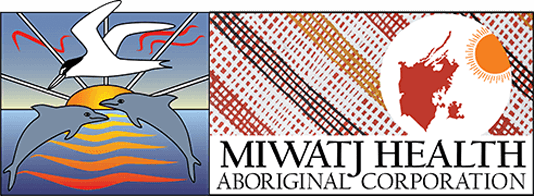Miwatj Regional Health Challenges
The Indigenous health profile of the Miwatj region reflects the generally poor health status of Aboriginal people across the Northern Territory.Lifestyle diseases can to a large extent be prevented.
Often disadvantaged by a low birthweight, an Indigenous or Torres Strait Islander child typically faces a much higher risk of infectious disease, anaemia, pneumonia, otitis media, skin diseases such as scabies, rheumatic heart disease and lack of dental care.
In the causal interplay between child health and chronic illness, the longer-term outcome is high rates of chronic disease, particularly type 2 diabetes, cardiovascular disease, renal disease, lung and other cancers.
Our Miwatj Health services work hard to achieve good results for many health indicators, through clinic attendance, blood pressure control and diabetes control. However, to maximise good health outcomes the main need is to drive a broader community and public health agenda.
While chronic illnesses currently dominate much of the work, we do at Miwatj Health, this was not always the case. Many Yolŋu see the poor health they have experienced as coinciding with the opening of mines and mining townships in the late 1960s/early 1970s.
These centralised settlements brought ready access to junk food, sugar-based soft drinks, and tailor-made cigarettes. These and other aspects of western society have undermined the resilience which traditional lifestyles had developed over a very long period.
Addressing Social Determinants of Health
A traditional Yolŋu view of health is that the underlying cause of illness is disruption in social relationships – which are ultimately based on the relationships between humans and the natural world.
Historically, the main Yolŋu response to threats to their health and wellbeing has been to develop homeland centres, small family-based settlements on traditional land away from alcohol and other harmful influences of settlements and ex-missions. Among the Yolŋu today, the belief continues that homeland centres are a way to counter introduced illnesses.
Miwatj Health, as a community-controlled organisation, takes this community belief into our strategic approach. We provide clinical individualised medicine, while also tackling the social determinants of health.
Over the past two years Miwatj Health has made concerted efforts to increase staff resources allocated to longer-term prevention and accessing people who would not normally attend a fixed clinic.
The broader mix of services provided by Miwatj Health today is a combination of clinical services with a focus on long-term care planning, and the provision of acute care services when and where necessary. This is complemented by community-based programs aimed at the risk factors underlying chronic illness, and poor child and maternal health.
Let's Build Stronger Communities Together
Get in touch with the team at Miwatj Health today
